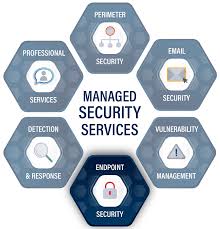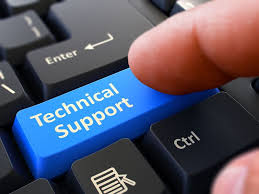In an increasingly digital world, cybersecurity has become a top priority for businesses of all sizes. However, small businesses in the USA are especially vulnerable. Many lack the robust security infrastructure and in-house IT expertise that large enterprises have. Cybercriminals know this—and they target small businesses accordingly. Fortunately, with the right cybersecurity tools and the support of experts like Remote Expert Solutions (RES), small businesses can stay secure, compliant, and competitive in 2025.
This guide explores the top cybersecurity tools small businesses need, how they work, and how RES helps implement them effectively for maximum protection.
The Growing Cybersecurity Threat to Small Businesses
In 2025, cyber threats are more sophisticated, more frequent, and more damaging. Ransomware, phishing attacks, malware, insider threats, and data breaches are no longer rare occurrences—they are part of the everyday landscape. According to industry reports, over 60% of small businesses experience some form of cyberattack every year, and nearly half of them go out of business within six months of a major data breach.
Small businesses hold valuable customer data, payment details, business credentials, and proprietary information. When left unprotected, this data can be easily exploited, leading to financial losses, reputational damage, and legal consequences. That’s why investing in top-tier cybersecurity tools is no longer optional—it’s essential.
Why Choose RES for Cybersecurity in 2025?
Remote Expert Solutions (RES) is a trusted USA-based provider of IT and cybersecurity services designed specifically for small businesses. RES understands the unique challenges small business owners face—tight budgets, limited tech resources, and the urgent need for scalable protection. RES helps clients implement advanced, cost-effective cybersecurity tools that safeguard sensitive data, prevent cyberattacks, and ensure compliance with regulations.
With 24/7 monitoring, expert consulting, and tailored security solutions, RES gives small businesses the confidence to grow without fear of digital threats.
Essential Cybersecurity Tools Every Small Business Needs in 2025
As threats evolve, so must the tools used to stop them. Here are the top cybersecurity tools that every small business should have in 2025, all of which RES can deploy and manage for you:
1. Endpoint Detection and Response (EDR) Tools
EDR tools go beyond traditional antivirus software. They detect, investigate, and respond to suspicious activity on devices like laptops, desktops, and mobile phones. With advanced behavior analysis and threat intelligence, EDR solutions help isolate threats before they spread.
2. Next-Generation Firewalls (NGFW)
A basic firewall is no longer enough. NGFWs inspect traffic at a deeper level, filter out malicious packets, and prevent unauthorized access. They protect your network from external and internal threats while allowing safe traffic through.
3. Multi-Factor Authentication (MFA)
Password-only systems are a major vulnerability. MFA adds an extra layer of protection by requiring a second form of identification, such as a phone app or biometric scan. RES ensures seamless MFA integration for employees and system users.
4. Secure Email Gateways
Phishing emails are one of the most common ways hackers target small businesses. A secure email gateway filters and blocks malicious emails, ransomware, spoofing attempts, and harmful links before they reach inboxes.
5. Data Backup and Disaster Recovery Solutions
Data loss due to cyberattacks or hardware failure can be devastating. RES provides automated, encrypted backup systems and disaster recovery planning so your business can quickly bounce back from disruptions.
6. Security Information and Event Management (SIEM)
SIEM systems collect and analyze logs from all your IT assets to detect unusual behavior. These tools offer real-time alerts and actionable insights to stop attacks in their early stages.
7. Virtual Private Network (VPN) Tools
Remote work has become the norm. A secure VPN ensures that employees accessing company data remotely do so through encrypted channels, protecting your business from external surveillance and data leaks.
8. Web Application Firewalls (WAF)
If your business relies on a website or web-based applications, WAF tools protect against attacks like SQL injection, cross-site scripting, and other web vulnerabilities that could compromise sensitive information.
9. Identity and Access Management (IAM)
IAM tools help businesses control who has access to what systems, data, and tools. Role-based access controls, user authentication, and audit trails help reduce the risk of insider threats and unauthorized actions.
10. Endpoint Encryption
Encrypting files and devices ensures that even if a device is stolen or lost, the data remains unreadable to unauthorized users. RES implements full-disk encryption to protect data at rest and in transit.
Strategic Advantages of Using Cybersecurity Tools with RES
Choosing RES as your cybersecurity partner gives your business several key advantages:
- Tailored Protection: Custom security stacks that fit your business model, industry, and risk profile
- Cost Efficiency: Enterprise-level tools delivered at small business-friendly pricing
- Expert Support: Access to certified security professionals and incident response specialists
- Proactive Defense: 24/7 threat monitoring, alerts, and threat elimination
- Compliance Assurance: Meet data security regulations such as HIPAA, PCI-DSS, and GDPR
- Business Continuity: Backup, recovery, and failover planning to prevent costly downtime
- Education and Training: RES offers cybersecurity awareness training to your employees, minimizing human error
With RES, cybersecurity becomes a strategic investment—not just a reactive measure.
Advantages of Cybersecurity for Small Businesses
Implementing cybersecurity tools provides numerous benefits that go beyond just protection:
- Customer Trust: Secure systems reassure customers that their data is safe
- Brand Reputation: Avoid the fallout from data breaches that destroy public image
- Revenue Protection: Stop attacks that could freeze operations or hold data hostage
- Lower Insurance Costs: Cybersecurity compliance may reduce business insurance premiums
- Competitive Edge: Prove to clients and partners that you’re serious about digital security
- Legal Compliance: Stay in line with laws that mandate data protection and breach notification
- Productivity Boost: Fewer tech issues and downtime lead to higher operational efficiency
- Scalability: Secure infrastructure can support future business growth and expansion
FAQs – Cybersecurity for Small Businesses in 2025
1. Why are small businesses targeted by cybercriminals?
Small businesses often have weaker security systems, making them easier targets for hackers looking to steal data, install malware, or hold businesses hostage with ransomware.
2. What is the most important cybersecurity tool I should have?
While all tools are essential, multi-factor authentication (MFA) is one of the easiest and most effective ways to prevent unauthorized access.
3. How often should my business back up data?
Daily automated backups are recommended. With RES, backups are managed continuously with secure storage and rapid recovery protocols.
4. Do I need cybersecurity if I only run a small website or online store?
Yes. Even small websites are vulnerable to attacks. Hackers can exploit vulnerabilities to steal customer data or install malware.
5. Is antivirus software enough to protect my business in 2025?
No. Modern threats require a full security stack including EDR, firewalls, SIEM, and secure email tools. Antivirus is just one part of a larger defense system.
6. What is the role of RES in managing cybersecurity tools?
RES provides setup, monitoring, updates, support, and threat response—ensuring your tools function optimally while you focus on running your business.
7. Can RES help train my staff on cybersecurity best practices?
Yes. RES offers employee training and awareness programs to reduce the risk of phishing and social engineering attacks.
8. What happens if my business is attacked despite having tools in place?
RES responds immediately, contains the threat, begins data recovery, and conducts forensic analysis to prevent future incidents.
9. How much does a cybersecurity service package cost with RES?
Pricing depends on the number of users and services, but RES offers affordable plans designed specifically for small business needs.
Conclusion
In 2025, cybersecurity is more than a technical concern—it’s a business necessity. Small businesses in the USA cannot afford to ignore the digital threats that surround them. From ransomware attacks to data breaches and phishing scams, the risks are real, and the consequences are severe.
With Remote Expert Solutions, small businesses gain access to top-tier cybersecurity tools, expert guidance, and a proactive defense strategy that keeps them safe, scalable, and successful. Investing in cybersecurity today means protecting your future tomorrow.
Make cybersecurity your competitive advantage—with RES by your side, your business stays secure, trusted, and ready for growth in 2025 and beyond.
Contact Us
Admin@remotexpertsolutions.com






